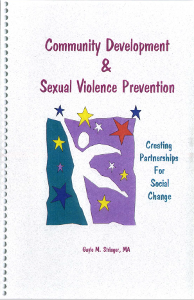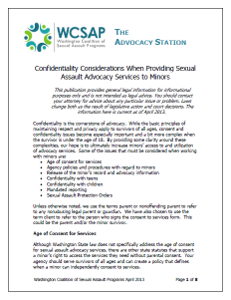Sexual assault program managers are drawn to the coaching model of supervision because it is in line with the values we have in our field. The coaching approach is attractive because:
- it is strengths-based
- it is based on respect for staff members
- it encourages professional growth and development
When we coach, we listen more than we talk, we facilitate rather than control, and we work with staff members to come up with…

